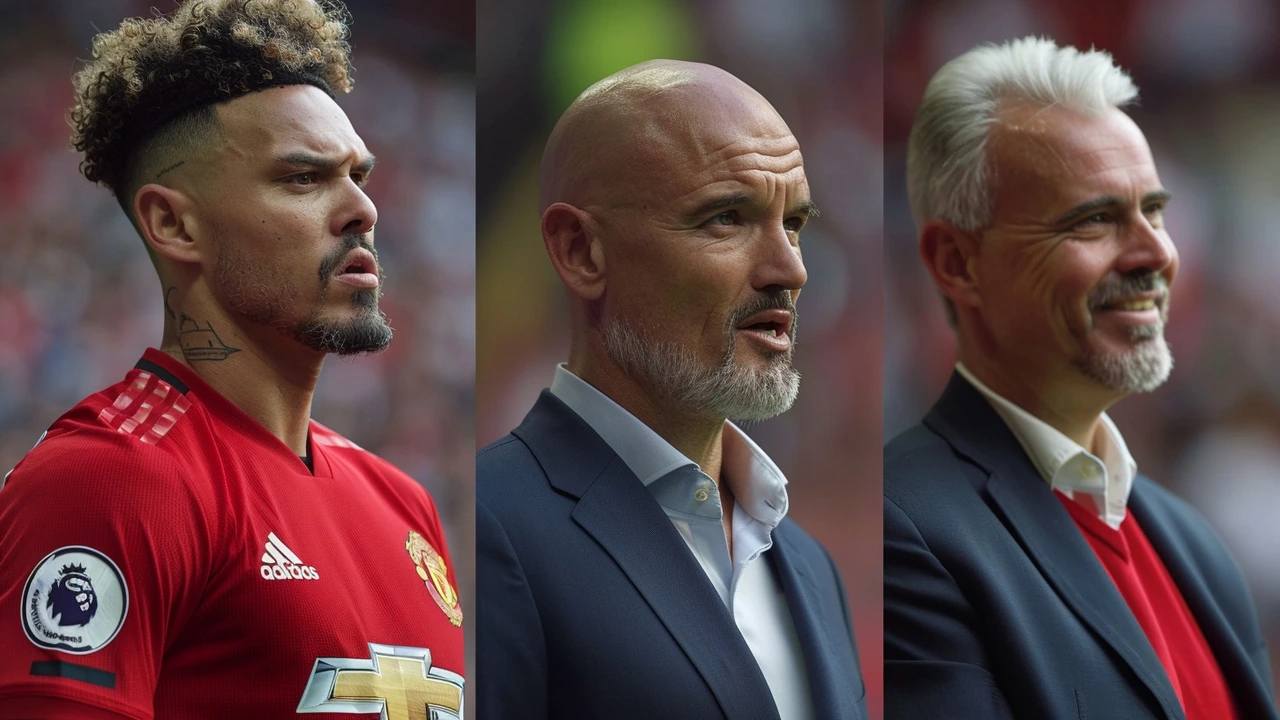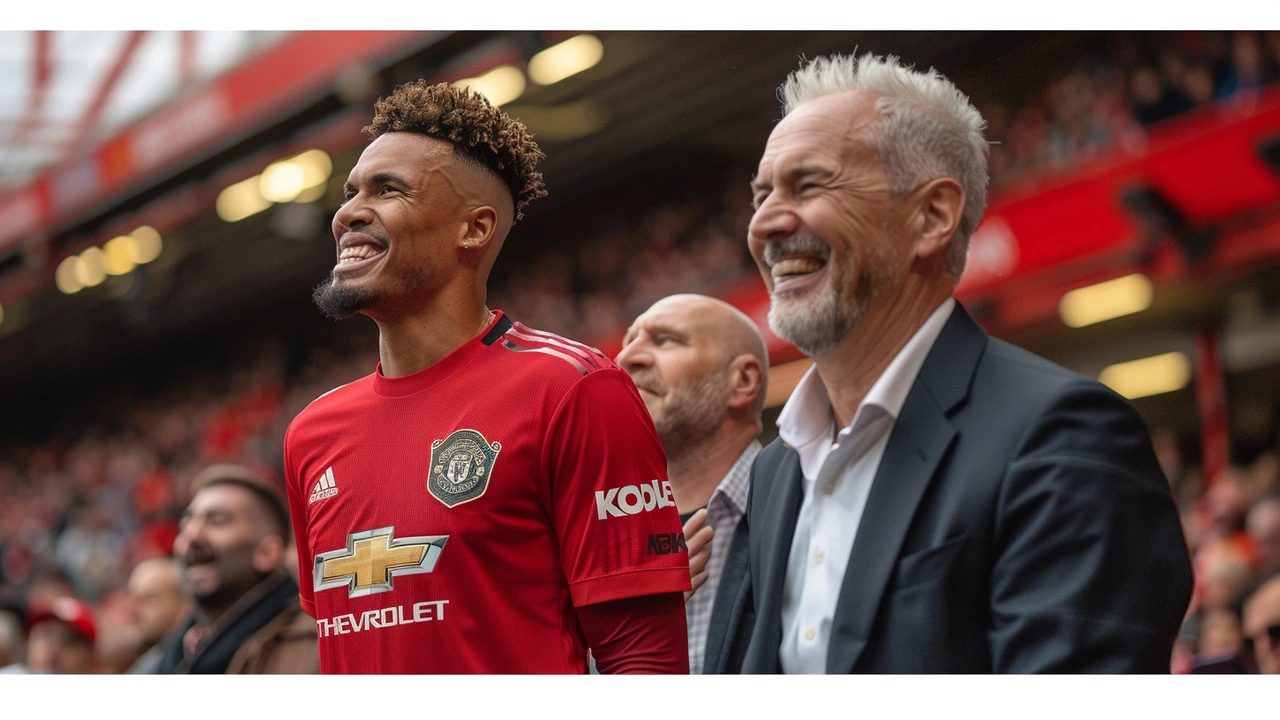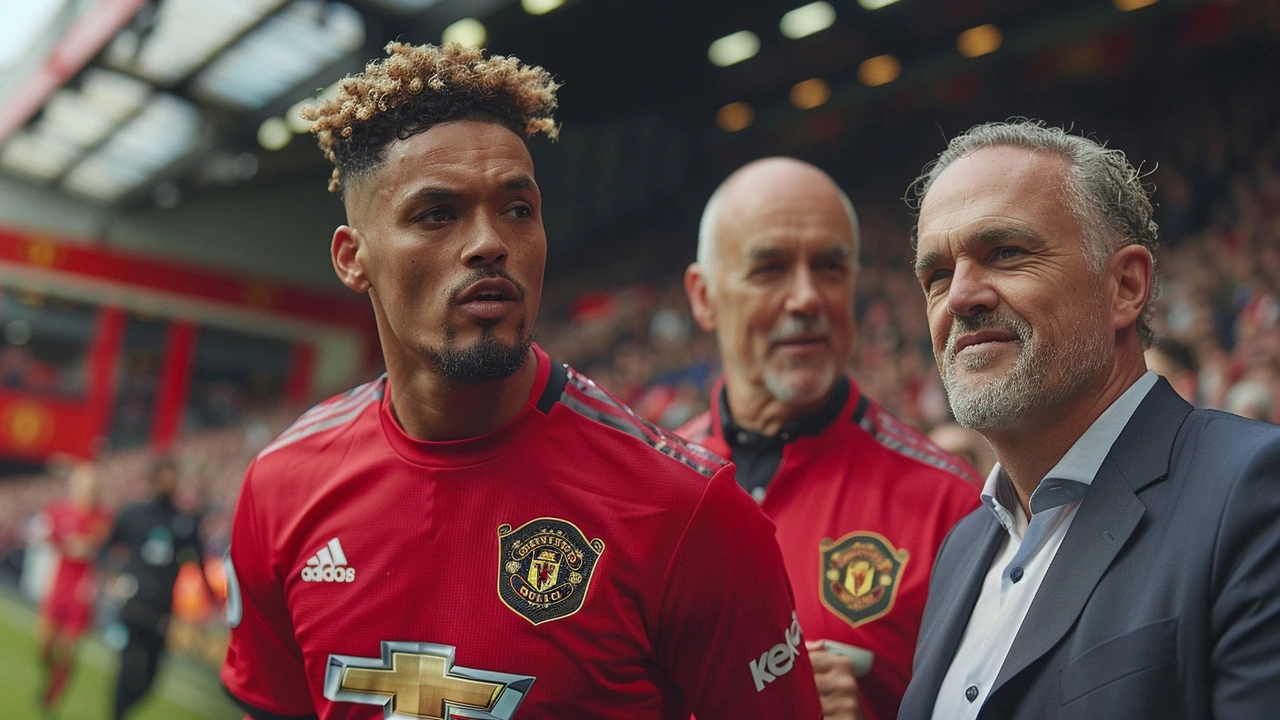Jose Mourinho Criticizes Erik ten Hag Over Jadon Sancho's Manchester United Struggles

Jose Mourinho Criticizes Erik ten Hag Over Jadon Sancho's Manchester United Struggles
In a recent turn of events that has stirred the football community, celebrated manager Jose Mourinho has openly criticized Manchester United's current boss, Erik ten Hag, over the handling of Jadon Sancho. According to Mourinho, who has an illustrious management career with clubs like Chelsea, Inter Milan, and Roma, Ten Hag bears a significant amount of responsibility for Sancho's less-than-stellar performance at Old Trafford.
Since his high-profile transfer from Borussia Dortmund to Manchester United, Jadon Sancho has found himself unable to replicate the sizzling form he displayed in the Bundesliga. The young winger's tenure at United has been marred by inconsistencies and a very public fall-out with Ten Hag, culminating in a dramatic turn of events that led to his loan move back to Dortmund. This series of incidents has sparked a widespread debate, with Mourinho's remarks intensifying discussions regarding the underlying issues that led to Sancho's predicament.
The Mourinho Perspective
Mourinho, never one to shy away from expressing his opinion, asserts that Erik ten Hag failed to harness Sancho’s potential. He implies that a manager, especially at a high-profile club like Manchester United, must possess the expertise to nurture and bring out the best in his players. According to Mourinho, a player's dip in form is not only an individual failure but often a reflection of the managerial approach to player development and man-management.
“A player like Jadon Sancho has immense talent, which you don't need to be a tactical genius to notice. The key lies in how you manage that talent, how you align it with your team's objectives, and how you foster an environment that allows that player to thrive,” Mourinho pointed out during an interview. He further added that top-tier clubs need managers who can integrate high-potential players into a cohesive unit effectively.
The Sancho Saga
Sancho’s struggles at United can be traced back to factors both on and off the pitch. On the field, he has struggled to find the rhythm that made him one of Europe’s most sought-after young talents. Off the field, the public dispute with Ten Hag has not only added to his woes but also spotlighted the broader issue of man-management in modern football.
The tension between Sancho and Ten Hag reportedly began over differences in training methodologies and tactical expectations. This eventually led to a public spat, resulting in Sancho being sidelined and ultimately loaned out to Borussia Dortmund. Many football pundits argue that such high-profile disagreements can have a detrimental impact on a young player's career trajectory.

Return to Dortmund: A Fresh Start
Sancho's return to Borussia Dortmund is widely seen as an attempt to reignite his career. Dortmund, the club where Sancho initially rose to prominence, offers a more familiar and perhaps more supportive environment for the young winger. The German club has a reputable history of developing young talent, and Sancho’s previous stint there was marked by impressive performances and numerous accolades.
Upon his return, Dortmund's head coach Edin Terzić expressed optimism about Sancho's potential impact. “Jadon is a phenomenal talent, and we're thrilled to have him back. We believe this environment can help him regain his form and confidence,” Terzić stated.
Sancho himself has shared his excitement about rejoining Dortmund, emphasizing his desire to get back to his best. “Dortmund feels like home to me. I’m grateful for this opportunity and look forward to contributing to the team,” Sancho said in a press conference.
Broader Implications for Player Management
The Sancho-Ten Hag saga brings to light the complexities involved in player management. Managers at the highest level are not only tacticians but also psychologists, mentors, and leaders who must navigate the multifaceted challenges of dealing with diverse personalities and egos. The situation accentuates that managing a football club goes far beyond the technical aspects of the game; it requires a nuanced approach to human dynamics.
Jose Mourinho’s comments, although critical, bring into focus an essential aspect of football management that often gets overshadowed by tactical discussions. The ability to foster a supportive and productive environment for players is crucial, and any lapse in this regard can lead to underperformance and discord within the team.

Conclusion
Jadon Sancho’s challenges at Manchester United and his ensuing return to Dortmund serve as a case study in the critical art of player management. As the footballing world continues to dissect Mourinho’s pointed remarks and Ten Hag's managerial approach, it becomes increasingly evident that the role of a modern football manager encompasses a broad spectrum of responsibilities, extending well beyond devising match strategies.
With Sancho looking to revive his career in a familiar setting, the football community watches with bated breath. Will he regain the form that once made him a Bundesliga star, or will his struggles persist? As the drama unfolds, one thing is certain: the conversation around effective player management is far from over.
7 Comments
Emily Kadanec
Look, Mourinho’s take isn’t some random rant – he’s spoting a pattern that Ten Hag keeps ignoring. The lad’s talent is obvious, but United’s system still forces him into a wing‑back role that crushes his natural flair. It’s not just a “bad season”, it’s a structural mis‑fit that any know‑how coach would spot. And let’s be clear, the media loves to paint Sancho’s slump as personal failur, when in fact the coaching staff hasn’t given him the freedom he thrived on in Dortmund. So yeah, Ten Hag bears a big chunk of the blame, whether he admits it or not.
william wijaya
Watching this saga feels like a masterclass in how tactical inertia can stifle a player's creative agency. Ten Hag’s high‑press philosophy, while effective in compact phases, often leaves the space‑driven winger stranded, forcing Sancho into low‑intensity off‑the‑ball runs that neutralise his dynamism. Mourinho, with his seasoned “bunker” mindset, probably sees the mis‑alignment as a failure of player‑centric integration – a classic case where the possession‑heavy blueprint clashes with a counter‑attacking prodigy. The psychological pressure, amplified by public spats, further erodes confidence, turning brilliance into mere statistical noise. In short, the mismatch between the manager’s systemic expectations and Sancho’s instinctive play style created a perfect storm of under‑performance.
Lemuel Belleza
Honestly, this whole drama is just overblown hype.
faye ambit
When we analyse the Sancho‑Ten Hag episode, it becomes evident that the problem transcends pure tactics and delves into the realm of organisational psychology. A manager must act not only as a strategist but also as a steward of player development, nurturing an environment where individual expression can coexist with collective objectives. The young winger arrived with a repository of technical prowess cultivated in the Bundesliga, yet he was thrust into a culture that rewards conformity over creativity. This clash can be interpreted through the lens of self‑determination theory, where autonomy, competence, and relatedness are essential for intrinsic motivation. By restricting Sancho’s autonomy on the pitch, Ten Hag inadvertently weakened his sense of competence, leading to a decline in performance. Moreover, the public nature of their disagreement fractured the relational bond, eroding the sense of relatedness that underpins team cohesion. In such circumstances, even the most talented individual may experience a phenomenon akin to learned helplessness, where repeated setbacks diminish agency. The subsequent loan back to Dortmund serves as a corrective feedback loop, re‑establishing the supportive context that originally fostered his growth. It also underscores the importance of cultural fit; a club’s ethos must resonate with a player’s personal identity to unlock full potential. While Mourinho’s critique highlights managerial accountability, it also reminds us that blame is rarely unilateral. Effective leadership involves a dialogue that balances strategic demands with empathetic listening, allowing space for adaptation. In practice, this could translate to tailored training regimens, flexible tactical roles, and transparent communication channels. Ultimately, the Sancho case is a microcosm of broader debates about modern football management, illustrating how psychological nuance can be as decisive as X‑G or passing accuracy. As observers, we should therefore broaden our evaluative criteria beyond win‑loss records to include the human dimensions that shape performance. Future managers would do well to study this episode as a reminder that nurturing talent is as much about emotional intelligence as it is about tactical acumen.
Subhash Choudhary
Honestly, I think Ten Hag’s ideas aren’t the worst – the squad is just in a transition phase and Sancho needed a bit more patience to settle. The English press loves to pick fights, but from a chill perspective the lad’s return to Dortmund might actually be what United needed to shake things up.
Ethan Smith
I appreciate your measured tone, Subhash, and agree that transitional periods can complicate player assimilation. Nonetheless, the evidence suggests that strategic misalignment, rather than mere patience, played a central role in Sancho’s difficulties, as reflected in his reduced expected assists and key passes per 90 minutes during his tenure at Old Trafford.
Evelyn Monroig
Don’t be fooled – Mourinho’s rant is just the tip of an orchestrated narrative designed by the football elite to distract us from the systematic suppression of player autonomy across top clubs. The media circus around Sancho is a manufactured distraction, a smokescreen that conceals the deeper power struggles that dictate who gets to shine and who gets silenced in the modern game.

Write a comment